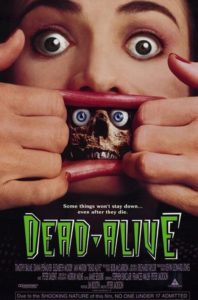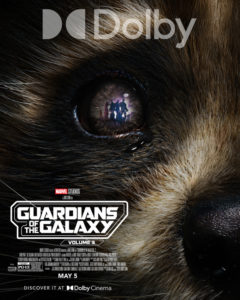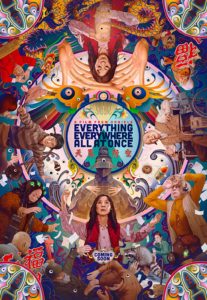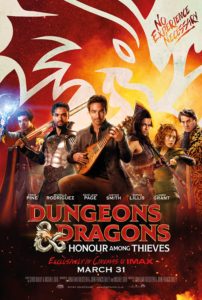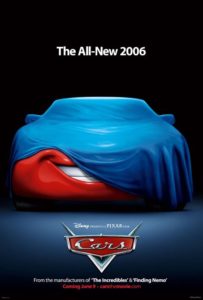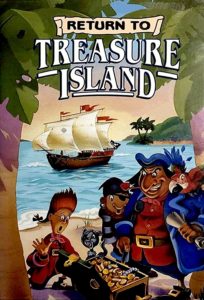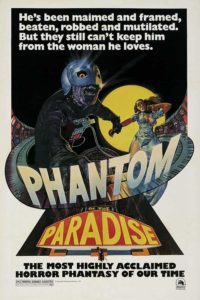 Based on no more evidence than what was on the videotape rental shelves at the Hastings in College Station, I’ve long believed that Phantom of the Paradise was a sequel to Phantom of the Mall[1], or possibly vice versa. The short answer is, I was wrong.
Based on no more evidence than what was on the videotape rental shelves at the Hastings in College Station, I’ve long believed that Phantom of the Paradise was a sequel to Phantom of the Mall[1], or possibly vice versa. The short answer is, I was wrong.
The long answer is, well, long. Longer than usual for here, honestly. And it will ramble. …not more than usual for here, as I am, in fact, a Ramblin’ Man. Mid-pandemic, 2021, my niece and her partner, Irish, moved into our house. They were already living together in a parental house, and had tried moving out into an apartment before, with unexpectedly violent results[2]. They could no longer live at any parental house, for various reasons, and were discussing maybe going to homeless living out of car status, so they moved in with us instead,
My son spent most of his second year of life around our roommates, and because of COVID and our best-effort safety measures, he was around almost nobody except family, so Irish was really his first friend. And I don’t solely mean happenstance, Irish was good around the boy. Eventually, they decided to move to Austin, since we basically had to kick them out once the girl’s birth was imminent, last year. I don’t know how well Mary and I succeeded at preparing either of them for being on their own and responsible for taking care of themselves, but we tried. They were basically teenaged adults when they got to us, so I’m hoping the earlier start will give us better luck with these two, the children of our loins[3].
After moving to Austin, Irish got an internship (and later job) at the Austin Film Society, and also made the affirmative decision to proceed with her transition, which included a new name, Lucky. I saw one of Lucky’s films last night, a music video of sorts starring my niece. I cannot do it justice, it was a stop-motion thing over a song called Leprosy by a band I am far to unhip to have ever heard of. It was dark and sexy without question better than some things I’ve seen on MTV. (And if it’s on youtube, I can’t find it. I wish it were.)
To bring things back around to the nominal reason you’re here, I also saw Phantom of the Paradise. It was definitely not what I was expecting to see, but I’m not at all surprised to learn it was Lucky’s favorite movie. There’s this guy who is writing a glam rock opera about Faust, and he runs afoul of another guy who has moved from young Elvis rock star status to aloof, incredibly rich music producer status. That guy, the bad guy, steals the opera to use as the centerpiece of his soon-to-be-opened rock palace, the Paradise.
The first act is slapstick, as Winslow loses his life’s work, learns he has lost it, and tries to get it back. Even the points at which he is horribly disfigured to achieve phantom status are played for dark humor. The rest of the flick might have been horror movie revenge, but instead he finds his Christine and decides to ensure she becomes the star of his Faust. And then things get strange. I know I’ve undersold this last point, because I did not and could not accurately describe just how over-the-top glam rock everything else has been up to now. In a weird way, it reminds me of Jesus Christ Superstar, the scene with Pharisees dancing around on scaffolding while deciding whether or not Jesus is a threat to occupied Israel. Same energy, for sure.
The movie was good, and I’d like to watch it again, as I think there’s more to catch. But yesterday was hard. We drove to Austin, including over an hour of wreck traffic on I-35, got there basically 45 minutes late, handed off the kids to Laylah to babysit[4], and rushed to the theater for Lucky’s memorial. I drove back last night, while Mary stayed to help our niece pack to move out of the old apartment, and now I’m here at home, just thinking about things. Mary says the proper terminology is that we lost Lucky to mental health issues, last month. I guess it might be a stigma thing around other phrases? I do not see that stigma, or rather, I think the stigma is on all of us who survived, not on Lucky who didn’t.
The world is a big, scary, fucked up place, and I wish we were better at taking care of each other than we are. Our niece is also in danger, less danger than she was a few weeks ago when she called the police for a health check and learned what had happened, but in danger nonetheless. I think I have maybe as many as two regular readers here, which makes the thought of posting a gofundme link to help her deal with the bills and the move in the wake of this tragedy feel a lot more pointed and targeted than I want it to feel, but all the same, i’m going to go ahead and post it.
Take care of yourselves, and each other when you can. (Basically nobody took care of Winslow Leach (our phantom), and it shows.)
[1] Viewed earlier this season on The Last Drive-In, and therefore not reviewed. Joe Bob talks too much for me to believe there’s a possibility of an unbiased review, as I’ve probably said before.
[2] Committed against them, to be clear. Nothing life-threatening, but too frightening to go through with the move, as a result.
[3] I know. I’m sorry.
[4] Thank you, again, should you happen to see this.
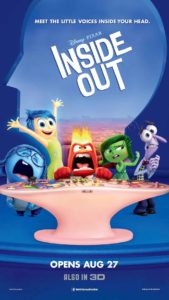 Posit a) that you have a toddler who is lightly sick and in need of low energy entertainment, and b) that said toddler has been announcing his emotions lately (which mostly consist of happy or sad, with a small side of mad[1]), mostly unprompted. If you’re me, you remember that one Pixar movie from a couple of years ago[2] that appears to hit the developmental sweet spot we’re going for, even though the character in the movie is, like, 11.
Posit a) that you have a toddler who is lightly sick and in need of low energy entertainment, and b) that said toddler has been announcing his emotions lately (which mostly consist of happy or sad, with a small side of mad[1]), mostly unprompted. If you’re me, you remember that one Pixar movie from a couple of years ago[2] that appears to hit the developmental sweet spot we’re going for, even though the character in the movie is, like, 11.

